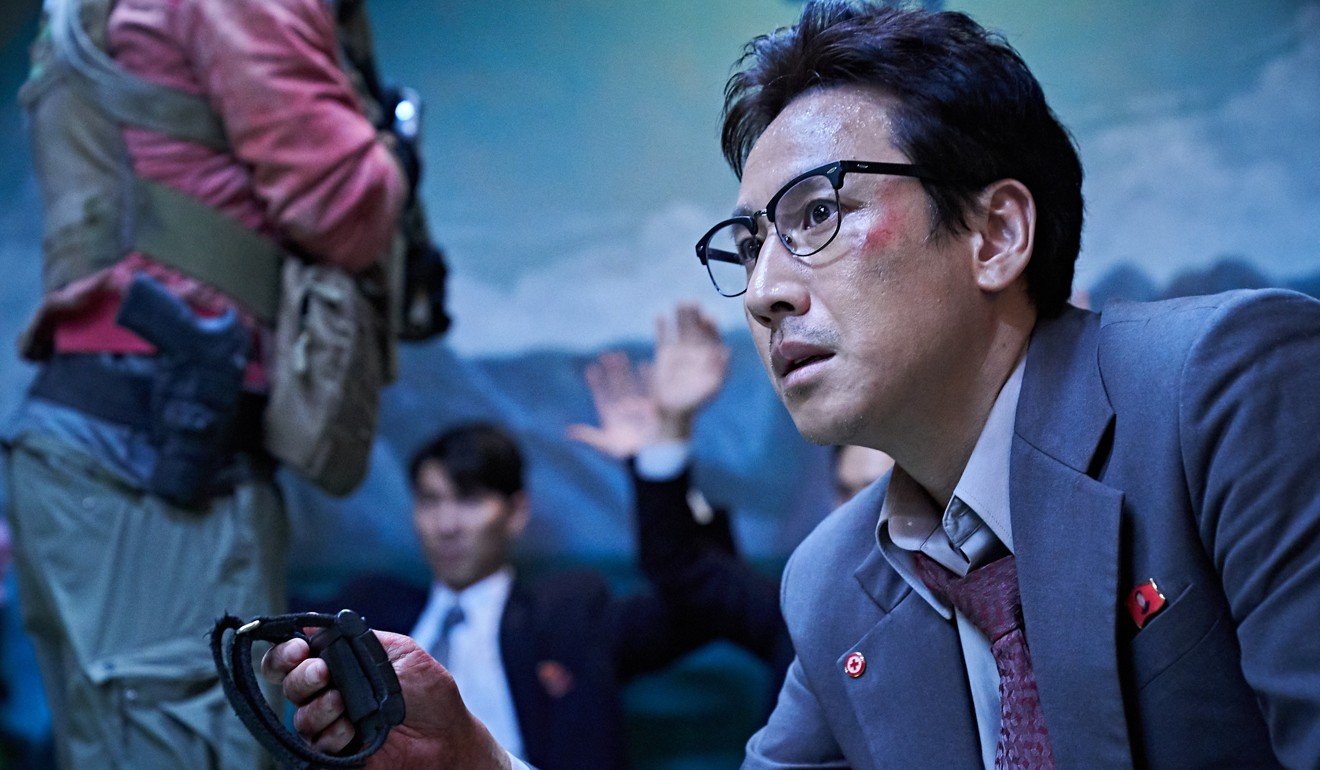
Review | Take Point film review: Ha Jung-woo in illogical South Korean action thriller
- Kim Byung-woo’s political action thriller fails to entertain on any level
- With terrible English dialogue, corny accents, a convoluted plot line and nauseating camerawork, it could be the worst film of the year
1/5 stars
From the convoluted set-up to its preposterous finale, Kim Byung-woo’s political action thriller defies logic and comprehension at every turn. Eschewing the noirish sheen of so many Korean contemporaries, while enforcing ham-fisted English dialogue on an ill-equipped cast, Take Point doesn’t break new ground so much as charge headlong into incoherent oblivion.
Ha Jung-woo, who previously collaborated with Kim on 2013’s The Terror Live, plays one-legged mercenary Captain Ahab (no, really), leader of an international crack team, hired by Jennifer Ehle’s shady US agent to extract a high-ranking North Korean defector.
Default review: financial crisis revisited in South Korean take on The Big Short
On the eve of a pivotal US election, and using a staged missile attack as cover, Ahab and his team infiltrate a subterranean bunker north of the border. There they discover King (Sun Wook-hyun), the country’s villainous leader, and their orders soon change to extracting the despot.
This merely scratches the surface of Kim’s overstuffed premise, much of which proves superfluous to the video game style shoot-em-up that follows. Enemy troops close in and Ahab’s team is picked off one by one, while numerous betrayals and double-crosses force him into an unlikely alliance with King’s personal doctor, Yoon (Lee Sun-kyun), to get the wounded leader safely above ground.
Kim is clearly looking to attract a global audience, but his theatre of international politics is largely nonsensical, and the English dialogue is riddled with grammatical errors and awkward delivery. Ha battles valiantly through his lines (thankfully he is subtitled throughout), but Kim exacerbates his problems by needlessly handicapping native English speakers like Kevin Durand and Malik Yoba with random foreign accents.

The Terror Live was an effective thriller, in which an escalating terrorist threat unravelled from the vantage point of a claustrophobic radio studio. Take Point builds upon a similar template, confining its principals to a single, labyrinthine location, while a nuclear crisis mounts off-screen. Unfortunately, Kim’s lofty ambitions buckle under a baffling narrative, nauseating camerawork, flimsy characterisation and hobbled performances.
Unsurprisingly, the final movement sees the wheels come off completely, escaping its underground confines for an airborne climax that imitates, yet pales next to, Tom Cruise’s game-changing work in Mission Impossible: Fallout . Kim then signs off with a defiant, unprovoked middle finger, not to the North, but as a united nation against China, as Take Point makes a strong, early bid to be worst film of 2019.

